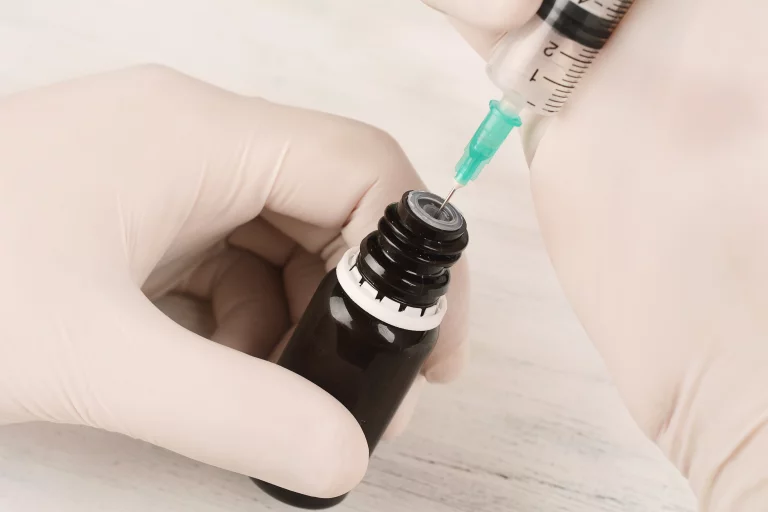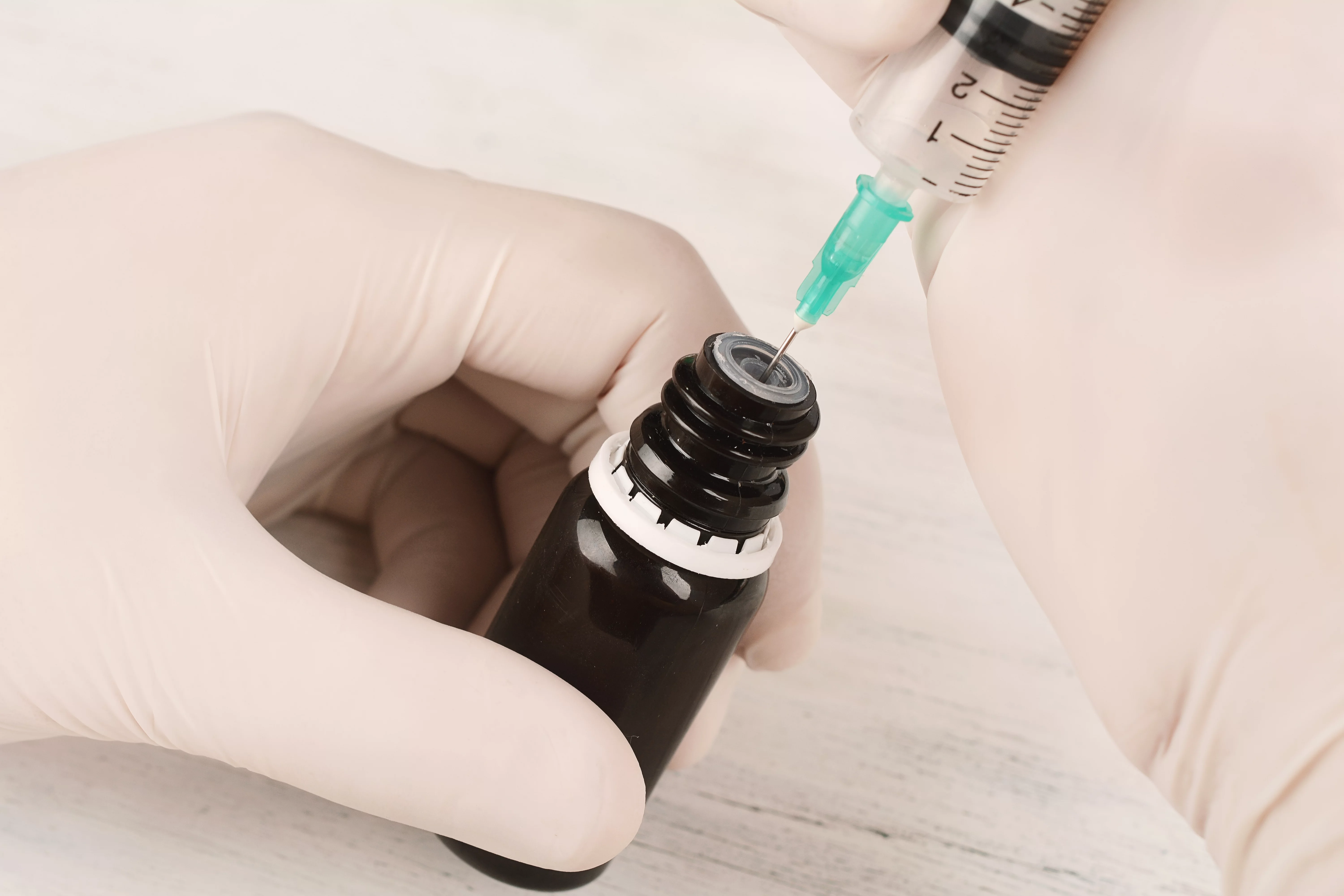Growth hormone (STH) - myths and facts

The famous Spanish explorer Juan Ponce de León arrived in 1513 in the territory of today's American state of Florida to find the mythical Fountain of Youth. Whether he really succeeded is now a matter of ancient history, but the fact remains that for his old age (he died at the age of 46 which is for the period of 16th century high) was not grateful for any miraculous fluid, but at most for regular exercise, which he practiced during his travels. Even today, there are many of us who strive to maintain longevity, youthful appearance and good health. Right now, such people are no longer looking for fountains of youth, but syringes containing growth hormone, which they inject into the body. The key question therefore remains whether human growth hormone is the real way to achieve longevity, health and strength. We will look for the answer to it together in the following lines.
ABOUT THE GROWTH HORMONE
Growth hormone or, if you wish, somatotropic hormone (STH) or somatotropin, is a proteinaceous substance produced by the anterior lobe of the pituitary gland (more specifically, the part called the adenohypophysis) and consequently secreted into the bloodstream. Its production, together with other hormones of the adenohypophysis, is regulated mainly by the hypothalamus, and to a lesser extent by the digestive tract and pancreas.
Growth hormone is increasingly secreted during exercise, after injury, and during sleep. Under normal circumstances, STH is produced mostly at night, to a lesser extent during the day. Relying on the results of blood tests, if we want to get a picture of how much of this substance circulates in our body, can most likely be distorted, as its levels fluctuate considerably.
Somatotropin has substantial effects throughout the body. In children and adolescents, it supports the growth of bones and cartilage. In people of all ages, it speeds up protein production, affects metabolism and the delivery of fat stores, controls insulin secretion and increases blood glucose levels.
USE IN MEDICINE
Growth hormone is obtainable in injectable form, applied under the skin. It is a so-called recombinant form, meaning that it is not made from human or animal tissue and is identical in structure to natural human growth hormone. In Slovakia, it is used in children to treat growth failure due to a lack of its own hormone, chronic kidney failure, care for children with a low birth weight / length and genetic diseases such as Turner syndrome and Prader-Willi syndrome. Furthermore, injectable STH preparations are also used in adults with overt growth hormone deficiency.
GROWTH HORMONE, DOPING AND PERFORMANCE
Top sport is a drudgery, and it doesn't matter if you are a tennis player, a football player or a chess player. The competition is intense, progress is unstoppable and there are countless ways to extract the maximum from the racer. Therefore, it is not surprising if someone tends to the application of growth hormone in order to increase their performance. Although its use under official rules has been banned by the International Olympic Committee, the world's most prestigious baseball league, the MLB, the NFL or the World Anti-Doping Agency, there are still plenty of other sports where STH as doping is widely abused - for example, cycling or athletics. They do not hesitate to resort to this unclean way, even at the cost of possible detection, disqualification and discrediting among the sports and lay public.
As mentioned above, growth hormone levels in the body vary with time of day, so it is quite difficult to detect in a laboratory setting whether or not an athlete is using growth hormone injections. Nevertheless, there are numerous randomized clinical trials in the world today in which active athletes, divided into two groups, were administered either a hormone or a placebo, and their body composition, strength, and performance limits were monitored. A large meta-analysis of researchers from California, including the results of 44 expert studies, looked at gains in body (attention, not just muscle) mass in people who had been taking the hormone for at least 20 days [1]. The results were more than shocking - the increments ranged at almost 2 kilograms. We emphasize that: 2 kilograms in 20 days! However, we are still talking only about the increase in body mass, not the performance or strength itself. Therefore, the allegation that regular application of growth hormone will make you a stronger or faster athlete is more than questionable. I'm not afraid to claim that it is untrue.
GROWTH HORMONE AND LONGEVITY
To map whether people with adequate growth hormone intake live longer and are less predisposed to illness, a team of researchers evaluated the results of 31 studies after 1989. Although each study was relatively small in terms of sample, when combined, they reached a total of 220 subjects who received growth hormone injections and another 227 who formed a control group. Two thirds of the participants were male, with a mean age of 69 years and a mean duration of STH use of 52 weeks, i.e. 1 year [2]. Subsequently, the levels of several selected parameters were compared - LDL and HDL ("bad" and "good") cholesterol, triacylglycerols, aerobic capacity, bone density and blood sugar, i.e. insulin in the blood. No changes in the measured values after the application of growth hormone were recorded in any of the monitored indicators.
NUTRITIONAL SUPPLEMENTS
The best preparations to increase growth hormone levels are these and these. Can't see any link? No, this is not a mistake, but a conscious typo. Because to say that a given nutritional supplement will make you bigger, stronger, and faster in a matter of weeks or months is a myth. However, it is necessary to add in one breath that a properly balanced combination of diet, exercise and nutritional supplements will help you achieve all your goals, keeping you healthy and able to deliver the highest possible performance. All you have to do is choose and we at NaMaximum will always be happy to advise you on this.
SOURCES
LIU, H. et al. Systematic review: the effects of growth hormone on athletic performance. Annuals of Internal Medicine. Volume 10, 148. edition, 2008.
HORIKAWA, R. et al. The influence of a long-term growth hormone treatment on lipid and glucose metabolism: a randomized trial in short Japanese children born small for gestational age. Volume 19, 1. edition, 2016.




